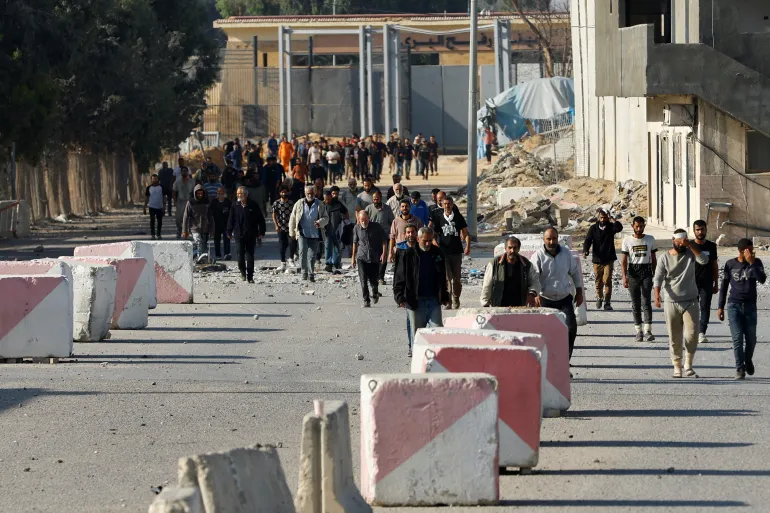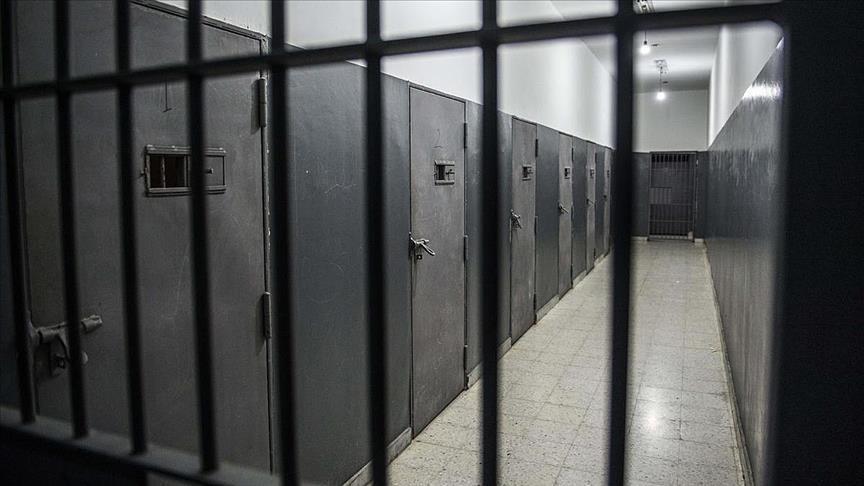
Israel has proposed a vetting process for displaced Palestinians returning to northern Gaza once a ceasefire is established, reversing an earlier agreement to allow free movement for those who fled south, according to four sources who spoke to Reuters.
Israeli negotiators argue that screening is necessary to prevent Hamas fighters from reintegrating into the civilian population in the north, a concern highlighted by a Western official.
However, the Palestinian group Hamas has rejected this new demand, although an Israeli official mentioned that Hamas had not yet received the latest proposal, which is expected to be communicated soon.
“The messages from Hamas are bizarre because we haven’t sent it yet. Nobody has read it yet. Even the negotiators haven’t got it yet. They will read it before transferring it to Hamas for their reaction,” the Israeli official said, requesting anonymity due to the sensitivity of the talks.
Another contentious issue is Israel’s demand to maintain control over Gaza’s border with Egypt, which Cairo has dismissed as beyond the scope of the agreed framework.
The offices of Israeli Prime Minister Benjamin Netanyahu, the White House, and Egypt’s foreign ministry have not commented on Israel’s demands.
Hamas senior official Sami Abu Zuhri criticized Netanyahu for stalling but did not directly address Israel’s demands.
The announcement of these new sticking points comes as U.S. President Joe Biden urges for a ceasefire during talks in Washington with Netanyahu, aiming to finalize an agreement.
“We are closer now than we’ve been before,” said White House national security spokesperson John Kirby, though he acknowledged remaining gaps.
Netanyahu emphasized Israel’s efforts to secure the release of hostages held in Gaza during a speech to the U.S. Congress. The ongoing indirect talks between Israel and Hamas, mediated by the U.S., Qatar, and Egypt, focus on a three-phase framework proposed by Biden.
The initial phase involves a six-week ceasefire and the release of hostages in exchange for Palestinian prisoners. Talks for a permanent end to hostilities and major reconstruction efforts would follow in subsequent phases.
Israeli officials introduced the vetting mechanism for civilians returning to northern Gaza during recent negotiations in Cairo. Israel fears that among the returning civilians could be covert supporters of Hamas, according to a Western official and other sources.
Additionally, Israel’s demand to control a nine-mile strip along the border with Egypt, known as the Philadelphia corridor, remains a sticking point. The IDF seized this area in May, citing it as a smuggling route for Hamas. Egypt claims to have destroyed these tunnels years ago and fortified the border to prevent smuggling.
Efforts continue to resolve these issues, with possibilities including an Israeli withdrawal from the strip or an alternative management understanding, according to the Western official.
A senior Biden administration official indicated that both sides are in the final stages of securing a deal, with remaining demands from both Hamas and Israel to be addressed in the coming week. Hamas’s Zuhri accused the U.S. administration of covering for Netanyahu’s undermining of the deal by implying demands from both sides.




